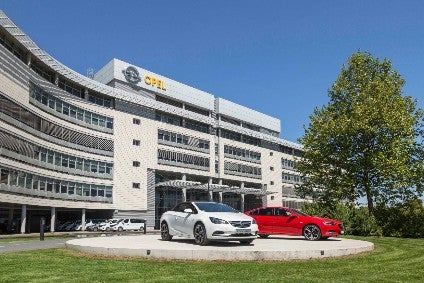“We don’t plan any job losses.” How often have you heard that as Company A gobbles up Company B and nervous workers await the almost inevitable axe or, at best, substantial changes to their conditions (and sometimes locations) of employment? We’ve seen it time and again here in the UK as carefully groomed, sincere-sounding, media savvy suits assure government regulators and the general public they will maintain a workforce post merger but, barely the ink is dry on the acquisition deal, comes the ‘previously-unforeseen’ need to ‘consolidate operations’, and bang goes a plant or two, along with its ‘headcount’. As a wise old franchise auto dealer said to me decades ago, as his family firm was folded into a slick new corporate-owned chain and he looked forward to retirement: “Son, there are always job losses when companies combine; they don’t need two CEOs, CFOs, sales managers, and so on.”
I thought of that when PSA bailed GM out of its money-haemorrhaging European Patient, aka GM Europe and Opel/Vauxhall, a while ago. Remember the attempt to launch Chevrolet, that all-American brand, with mainly Korean (ex-Daewoo) products? How many attempts was it to ‘relaunch’ Cadillac – contracted out to a Dutch distributor at one point – this side of the pond and cream Audi, BMW, Mercedes, etc? The Americans just didn’t get it. Just like Texas buys American trucks, Europeans buy local premium, the odd Lexus excepted. Nothing wrong with the core Opel/Vauxhall products but pricing was too close to, you guessed it, real premium brands so they ended up being discounted heavily to shift the metal to fleets, skewering resale value. Time to turn out the lights, leave, and wish PSA All the Very Best. So far, so good. GM had already wielded the axe on the plants in Antwerp and Bochum so, for now, at the European plants and the two here (making Astra at Ellesmere Port and vans at what’s left of Luton), it appears to be, despite the odd mild threat re productivity, Business as Usual. But.
I was not at all surprised to learn this week PSA and Opel had informed German unions of plans to discuss a potential partnership with engineering service provider, Segula Technologies, which could see up to 2,000 jobs transfer to the solutions provider. Translation: “We’re moving you to a contractor.” The move was in response to what Opel called a “heavily decreasing workload” from third parties and was designed, it said, (and I hope) to protect engineering jobs. The Segula Technologies proposal aims at creating a European engineering campus and centre of excellence in Ruesselsheim, enlarging the scope beyond the automotive industry and including fields such as rail and energy. Given the amounts being spent on both those sectors here in Europe, that makes sense and gives vehicle engineers opportunity to extend their considerable abilities into other tech.
Segula Technologies is offering jobs until July, 2023, honouring a deal made between automaker and workforce. Better than an immediate axe, for sure. Simon Warburton dug further and learned Segula is a global engineering company operating in automotive, aerospace, energy, rail, naval, pharmaceutical and petrochemical so taking on Opel R&D would create the capacity to combine complete vehicle development and testing, as well as powertrain engineering and testing under one roof. It also hopes the excellence centre will lure further engineering companies to the Ruesselsheim and Dudenhofen area, “building a thriving and globally recognised campus of engineering expertise”. I’d wish them all the Best of British while crossing fingers the 2,000 Opel people still have jobs after 2023. With Brexit and Trump tariffs, industry, and not just autos, faces very challenging times.
Europe’s also been a gloomy place for Ford which has faced much the same challenges as its fellow Detroit based rival and also taken plant closure measures. It looks like the model range is next to face a cull (and possibly more employees) with the Mondeo, Galaxy and S-Max models likely to be axed as the blue oval looks to concentrate on more successful models and SUVs. In July, Ford chief Jim Hackett said the company planned to spend around US$11bn on restructuring its European business after Ford lost US$73m in Europe between April and June, hurt by declining diesel sales and a product line seen by some analysts as relatively weak. Analysts at Morgan Stanley believe Ford could cut as many as 12% of its more than 200,000 workers, with much of that approximately 24,000 concentrated in Europe. It may also trim its dealer network. An extensive review of its European operations may also consider joint ventures with other companies to share costs – it has previously developed MPVs (minivans) with the VW group and shared engines with PSA.
On a more positive note, Dave Leggett has been out with Ford this week to see and drive the new Focus, its perennial occupant of the UK top five sales chart, completely refreshed. The automaker has boosted the level of advanced driver assistance systems (ADAS) equipment in this fourth generation model and says it comes with a suite of features that take it to SAE level 2 automation. Inevitably, the subject of Brexit came up in a chat with Ford’s UK aftermarket parts distribution manager.
Have a nice weekend.
Graeme Roberts, Deputy Editor, just-auto.com







